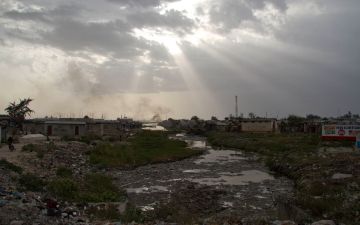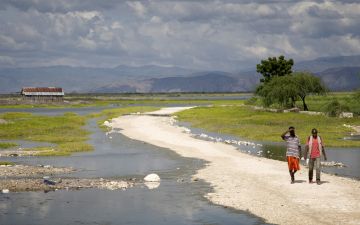In the summer of 2012, nearly two years after the outbreak of cholera in Haiti, the devastating illness remains a pervasive threat. When the disease first surged in October 2010, the bacteria affected not only waterways but also the daily lives and cultural psyche of Haitians. Cholera has claimed the lives of 7,000 Haitians. It also casts an ominous shadow across life-giving community water sources and taxes the limited resources of the government and health care providers.
Now, as the disease becomes endemic, the seasonal spikes of cases provide a backdrop to questions about how the country will respond. Historic distrust of UN peacekeeping forces has evolved into bitter blame. Allegations as to the UN's role in bringing cholera to Haiti dominate a Haitian court case against the world body. Aid agencies and government bodies scramble to confront the epidemic, but concerns have arisen that such services are only a quick fix for a problem that lies deep within Haiti’s water and sanitation infrastructure. Medically, treating cholera in an individual is relatively cheap and easy. But for the country as a whole the challenge is only getting more complicated.


